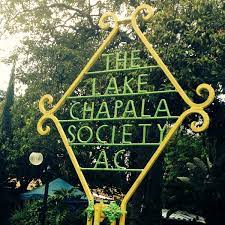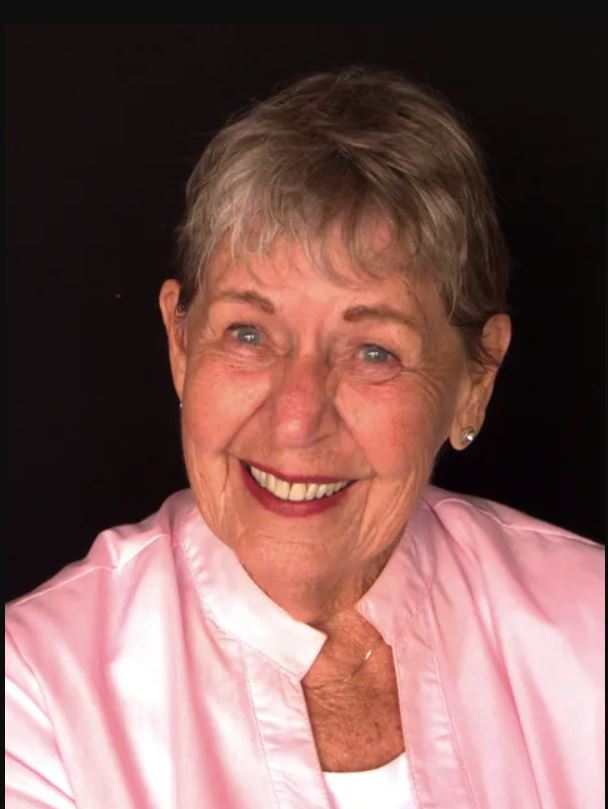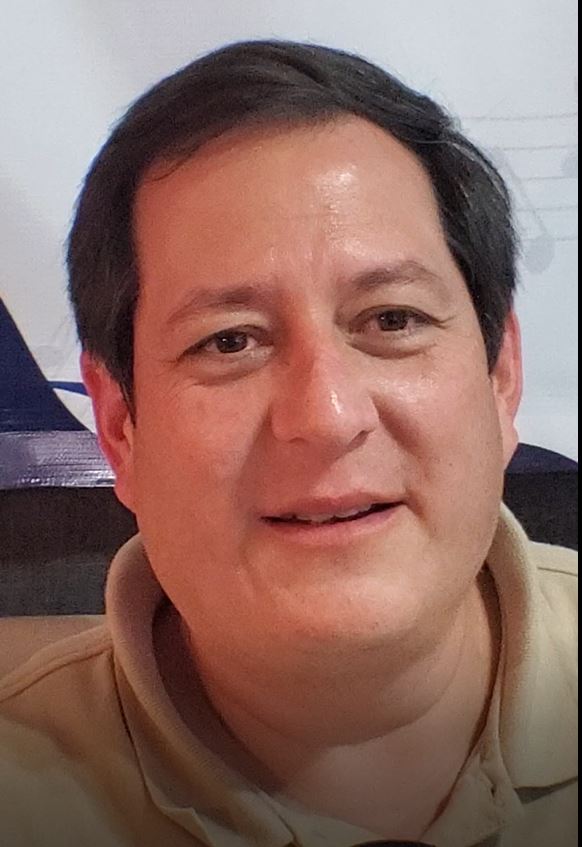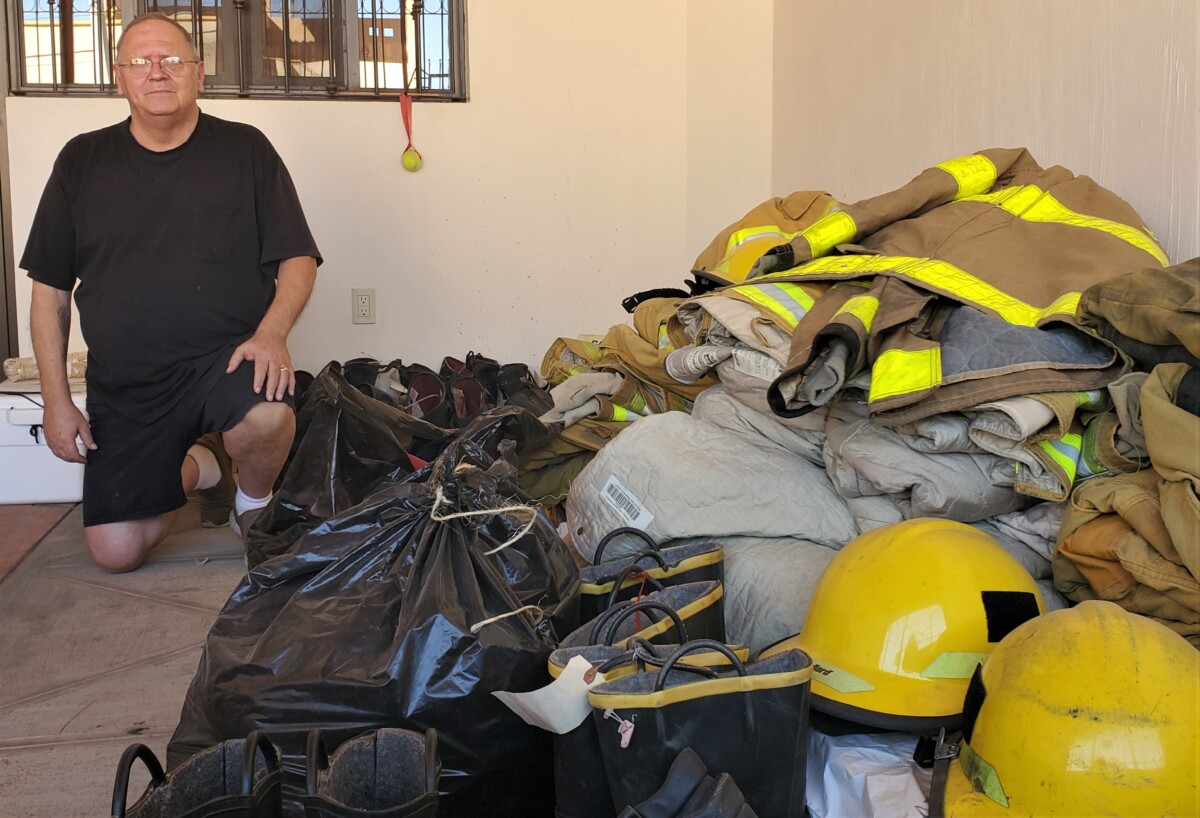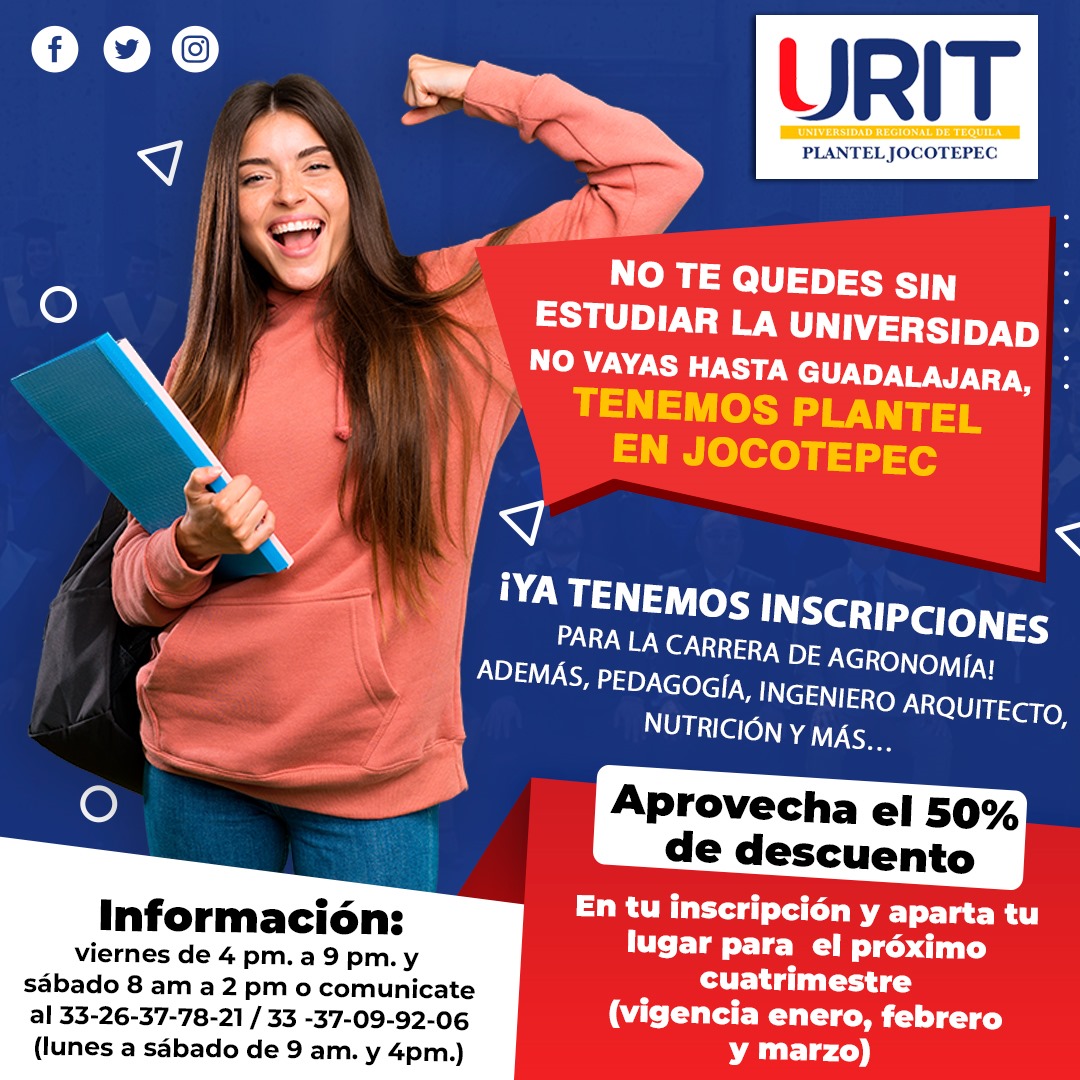expats
Who are we? UdG team surveys expats
Foto: Archivo.
Patrick O’Heffernan, Ajijic JAL. A social science survey of expats in Mexico is now being conducted by postgraduate students at UdG, using the web-based tool Survey Monkey to gather data from Lakeside, Puerto Vallarta and possibly other locations with high expat concentrations. Local expats can take the survey b y computer or on their phones.
Dr. Marco Córtes , Rector of UdG between 2008 and 2013, and CUCosta Research Professor Dra. Cecilia Soraya Shibya Soto, are managing the study which they expect to give a detailed picture of the expats living in Lakeside and other areas, in order “to know the effect of the social, economic, recreational and cultural practices of the foreign population, along with the main characteristics of their socio-moral, civic and political identity in the community and how the interaction of this foreign community with the local community has contributed to economic development, urban space and identity construction.”
“With this data,” Dr. Shibya told Laguna, “ the needs, opinions and contributions of the foreign community will be better understood and heard, and this will enable various sectors to integrate with them for the improvement of all.”
The 50 question multiple-choice survey is designed for permanent and temporary residents and is voluntary and anonymous. It covers location, income, religion, living costs, language, local involvement, cost of living, and recreation to give the research team a detailed demographic snapshot of expat communities. It will not answer questions about the population of expats, but could provide data that can be extrapolated into population estimates.
The researchers are hoping for a large number of respondents to give them not only a statistically reliable data set, but also to make the information useful to other institutions and provide a baseline of information on the expat communities. They are working with a number of local organizations to distribute the survey, so it may arrive in people’s mailboxes from a variety of sources. Expats may also have participated in similar surveys by the TransAmerica Center for Retirement Studies and Expats in México which are more financially focused.
To take the survey, you may use either a phone or a computer. For a phone, hold the phone’s camera over the QR code printed here or that you receive in an email, and it will take you to the SurveyMonkey page with the questions. For those using computers or tablets, you may also access the survey at https://es.surveymonkey.com/r/iiigajijic which will take you to the Survey Monkey page of the Instituto de Investigaciones en Innovación y Gobernanza where the survey is located.
You may request the results or send questions to ceciliasshibya@hotmail.com
ATENTO AVISO: A los usuarios de las redes y lectores del semanario
A lectores y público en general:
A través de este medio, Semanario Laguna «La Noticia Como Es» se deslinda de toda publicación y relación con la cuenta de Facebook: Laguna Jocotepec, que fue creada el 5 de mayo del año en curso y cuyas publicaciones han circulado desde entonces.
Semanario Laguna es un medio de comunicación impreso y digital que vio la luz en el 2012 y que se ha ganado la preferencia de los lectores de la ribera del lago de Chapala, debido a sus publicaciones con contenido informativo.
La línea editorial de Semanario Laguna está limitada a informar de manera comprobada lo que publica y nunca a hacer denostaciones hacia alguna persona o institución política, pública, privada o religiosa.
Las opiniones publicadas en nuestras páginas digitales e impresas son responsabilidad de quien las firma y solo se publican si cumple con los requerimientos de nuestra línea editorial.
Semanario Launa no es un sitio en redes sociales e internet que surgió de manera improvisada a mitad de las campañas políticas, como muchas páginas incipientes que buscan aprovecharse de ello y del nombre de nuestro medio, por el cual usted y más de 37 mil seguidores se informan del acontecer diario de la Ribera de Chapala.
Adquiere la versión impresa de cada viernes en tiendas y puestos de revistas en Chapala y Jocotepec. Infórmate en el www.semanariolaguna.com y sigue nuestras redes sociales:
Facebook: Semanario Laguna
Twitter: @SemanarioLaguna
Instagram: semanario_laguna
Atte:
Semanario Laguna La Noticia Como Es
Ray Velvet Productions launch the International Music Festival this weekend
Poster.
Patrick O’Heffernan, Ajijic. Lakeside’s music season is off to a great start with the International Music Festival this weekend, produced by the Ajijic-based music organization Ray Velvet Productions, directed by Ray Domenech of Casa Domenech. The festival launches Friday evening with R&B and funk, moves onto Saturday with soft rock by Ajijic’s own SAGREY, and wraps up Sunday with hot Latin music from Mexico, Cuba and Venezuela.
The festival will be held at Number 9, a large outdoor venue owned by a local musician, located at Aquiles Serdan #9, 20 steps down from Vinos America on the Carretera. Festival goers will enjoy a Mexican all-you-can-eat buffet dinner with fresh handmade tortillas, a cash bar, and socially-distanced tables.
Friday’s lineup is ON FIRE , a R&B and jazz funk band with Willy Zavala on keys, Armando Curiel on drums and “Malabres” on bass and featuring Ajijic’s star saxman, Chuco Soto. Saturday evening will bring the vocals of Barbara Sagrey, fronting the SAGREY ban , with Diego Casas on drums, Kevin Real on bass, Azael Medeles on Keyboard, Ray Domenech on guitar and Kenji Matsui from Japan on lead guitar.
The Festival wraps up Sunday, April 25, with MANO PA’RRIBA, playing red hot Latin Music with the beloved Freddy Adrian from Venezuela on standup bass, Mexico’s Giovanni Figueroa on drums and Ronald Rivero from CUBA on the keyboard and fronted by Jackie Jacks with her beautiful vocals.
Tickets are $700 for VIP and $580 for general admission for each day (discount for multiple days). You can buy your tickets online at: Paypal.me/rayvelvetpro or in Casa Domenech, Zaragoza 109 Ajijic ,or At Angelina’s inside the Lake Chapala Society. Doors open at 6:30pm each day.
Third Time’s a charm for bi-cutural Big Band concert at the 4TO Sentido in San Antonio Tlayacapan
Kassi Valenti getting the new Stoplight Club for its grandopening April 15.
Patrick O’Heffernan, Ajijic. The Los Amigos Big Band’s “Welcome Spring” concert will open Wednesday April 7 at the 4TO Sentido restaurant in San Antonio Tlayacapan, after two previous concert dates had to be scrubbed because of Covid. The concert will kick off at 3:30pm with 2 hours of Expat favorites and some classic Mexican hits.
The Los Amigos Big Band, comprised of 20 Mexican and Expat artists, features 4 vocalists–Christy Carter Caldwell, Andrea Pérez Romero, Wanda White, and Lorenzo Elmo Adam, was founded by local musician and entrepreneur Christine Phillipson. Philipson worked hard to assemble a multicultural band of the best musicians she could find locally, although a few of the musicians, like the famous swing band leader Klaus Mayer, are from Guadalajara. The concert band will be directed by Paul Silverman of Ajijic, formerly music director at Big Band de Playa del Carmen.
“It was a lot of work to put together a bi-cultural big band – a lot of phone calls,” Philipson told Laguna in a phone interview, “ but our mission is to help local musicians who have been hurt terribly by Covid,” she said, adding that musicians who contract Covid can have problems with their lungs for years after the virus has left their body, especially impacting singers and horn players.
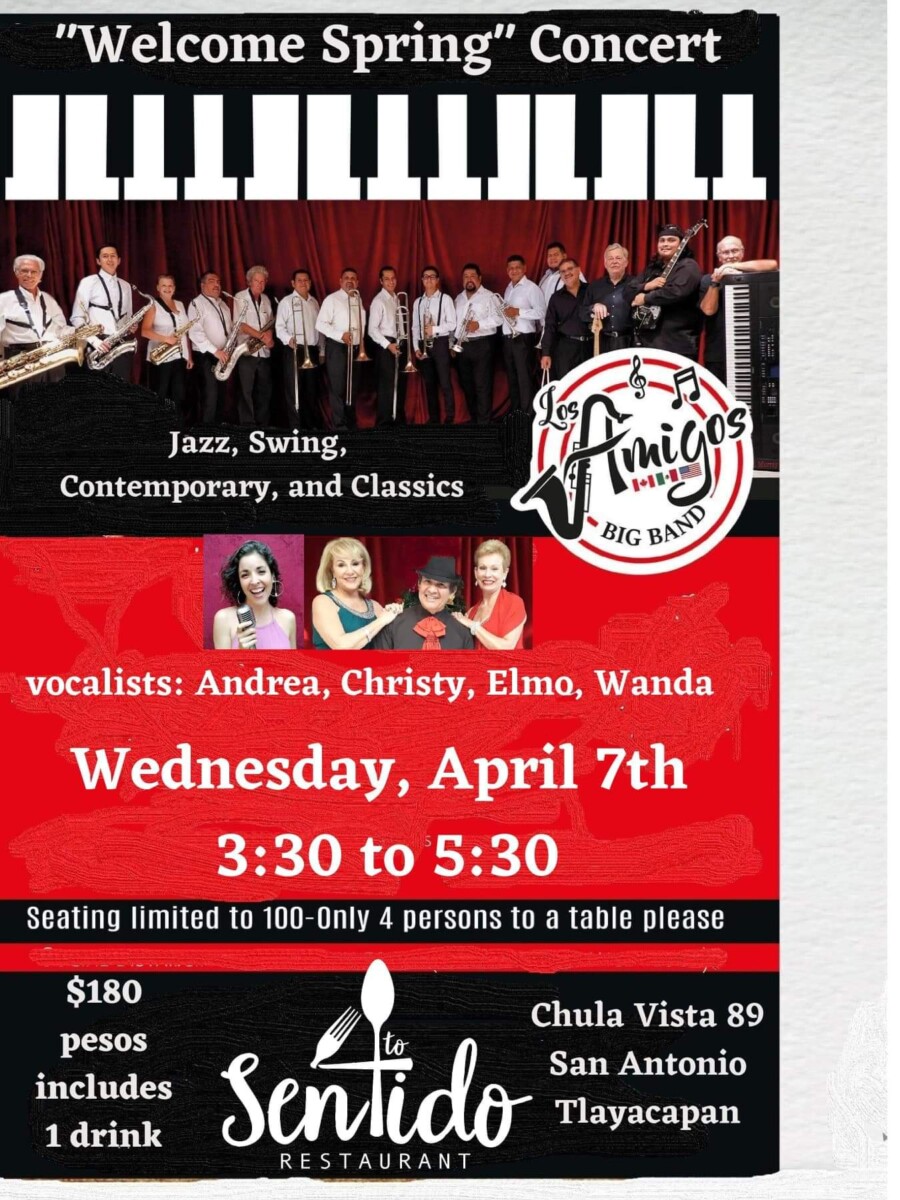
Poster for Welcome Spring concert by Los Amigos Big Band in Sn Antonio
Los Amigos Big Band is the third big band Philipson has created. The child of a musical theater family in Canada, she formed a band while in the Canadian military in 1990, and then full big band in 2009 after she left the military that is still going. She moved to Ajijic for the sunshine and founded the third big band, Los Amigos Big Band.
“My mother once told me I have a love of music, but not a gift for music, so playing would not be my career,” she said, noting that she actually plays the alto sax in the Los Amigos Big Band. The Band allows her to indulge her love of music while helping musicians and providing unique entertainment to the Lakeside community.
The April 7 concert at the 4TO Sentido – formerly the Hole-in-One and then the Avocado Club – will be produced with full Covid protection, including mandatory masks for dancers. Philipson pointed out that most of the anticipated 100-person audience should have had a Covid-19 vaccination by April 7. The restaurant is known for its fine international cuisine and may serve a special menu of classical Mexican and word food.
“Welcome Spring”, Wednesday April 7 at the 4TO Sentido, Chula Vista 89 in San Antonio Tlayacapan. Tickets are $180 pesos with one drink: food is extra. Tickets are available at mxnphilly@gmail.com or at the restaurant.
“Real Theater” returns to Lakeside Little Theater with Quarantine for Two, opening March 25
Poster for Quarantine for Two.
Patrick O’Heffernan, English Editor. After being off the stage for an entire season, Lakeside Little Theater will present a fully realized play – actors, costumes, stage, props – all in a socially distanced, Covid-19 safe, specially-built outdoor theater on the Angel Terrace.
Appropriately entitled Quarantine for Two, the play written by Hy Conrad who has generously allowed LLT to produce it, will feature three actors live onstage, six live by Zoom, and three projected onto a screen. The stage will be specially constructed under the awning on the Angel Terrace with the audience seated outside in socially distanced chairs and mandatory masks.
The dark comedy speaks to our times. After months of quarantine, the recently retired Oscar Ebersol and his wife Ruth are driving one another nuts and are ready to kill each other. A chance encounter with a stranger turns their world upside down and someone is likely to end up dead!
On stage will be Peter King as Oscar, Monnie King as Ruth, and Brian Fuqua as Marty the disruptive stranger. On screen will be Johanna Labadie and Gabriel Casillas and the Zoom party will feature Donna Burroughs, Randy Warren, Araceli Kopiloff, Brian Mattes, Carlos Rodriquez, and JeanMarie Harmon.
Quarantine for Two will run from March 25 through April 2, with no show on March 29. All productions will begin at 7:30 pm except for Saturday and Sunday, March 27 and 28, when curtain will be at 4 pm.
LCS Annual General Meeting. “We almost closed, but we are stronger now”
Lake Chapala Society 2020 budget projection showing a project loss of over $221,000 pesos. The actual deficit was over $300,000 pesos.
Patrick O’Heffernan, Ajijic. “We almost closed,” LCS Board President Stephen Balfour told the LCS Annual General Meeting Tuesday, reporting to the members gathered online that “during June and September we were at a high risk of closing – we were looking at being $1.3 million pesos below budget at the end of the year. We were exploring selling the Wilkes Center, laying off our staff, and even closing and selling the campus – we faced the possibility of closing for good.”
But the members and donors of LCS came through with a jaw dropping $2.3 million pesos in donations– fr more than its projected donations budget – which not only staved off the end of LCS, but to enabled it to emerge stronger and ready to raise funds to move ahead with is new LCS 2.0 growth plan.
“We have emerged from 2020 stronger – we are prepared not only to do things right, but to do the right things,” new Executive Director Luis Pacheco told the Zoom audience of over 150 people.
Tuesday’s Annual General Meeting was Pacheco’s first Annual General Meeting (AGM ) and it was a trial by fire for the new ED, as he took over the reins after the worst year in the organization’s history. In 2020 LCS lost over 1000 members, had to close the campus to meet Covid guidelines, postponed all of its expansion programs, lost its important trip and program revenue, and ended the year with an deficit of over $300,000MX. But LCS survived and Pacheco is determined that it will grow and prosper – with continuing help from members and donors.
“What we can do now is live within our hope,” LCS’s first Mexican ED told the members, as he laid out plans for improving and modernizing LCS, and expanding its engagement and collaboration with the Lakeside Mexican community.
Members received a report from Treasurer Timothy Boardman showing the pace of donations and the deficit from last year, a report from Education Director Alfredo Perez describing new Spanish language classes and Personal Enrichment classes including an upcoming program on how government works in Mexico, LCS’s support for 40 Mexican students, and LCS volunteer work with local schools . Development Director Diana Ayala explained the LCS emails about the pandemic, the upcoming 2021 Directory, and the project to improve the LCS computer system with help from the Instituto Technologico Superior de Chapala.
The staff and board laid out the highlights of LCS 2.0, its 10-yer plan for growth and development, previously approved by the Board but put on hold. LCS 2.0 has 42 goals in 5 categories and is led by the twin drives to improve and grow the organization’s programs and resources for members and dramatically increase engagement and cooperation with the Mexican community of Lakeside. Part of the plan is a capital campaign that seeks donors of any amount, but especially those who can give $40,000 pesos during the campaign, and an effort to rebuild membership, including its nascent Lapsed Member Program that calls former members to encourage them to rejoin even if they are not in Lakeside at present.
The AGM, usually a somewhat routine program that draws mostly highly dedicated members, was stocked with surprises, vital information, and new initiatives. Among the new announcements was the incorporation of Open Circle – formally a separate organization – into LCS with live meetings in July, the announcement of a new Master Marketing Council, the re-election of the Treasurer and five at-large Board members, information about the Concerts in the Park program with a hint of plans for music into September, the establishment of a Mexican Advisory Council, and a small increase in membership fees.
Lakeside Little Theater releases second video in the Legacy Project: Peggy Lord Chilton, star of TV, film and the Playboy clubs
Peggy Lord Chilton at the LLT Legacy Project.
Patrick O’Heffernan, Ajijic. The Lakeside Little Theater continues to mine the huge pool of top level theatrical talent living in Lakeside and working with the theater in its landmark Legacy Project, this week posting an intimate interview with the actress, director/comedian Peggy Lord Chilton.
Chilton has directed a musical and 6 plays at LLT and acted in nine. Her career included stage, recording a comedy album, dozens of television shows and 17 films, three nominated for Oscars. She was a longtime staple at the Playboy Clubs as a comedienne (no Bunny suit), a skill she honed in an alley outside of a club she was appearing while n smoking cigarettes and exchanging notes with Phillis Diller. A spinoff of the Playboy Club role was her inspiring the Little Annie Fanny cartoon series by Harvey Kurtzman and Will Elder that ran in Playboy Magazine.
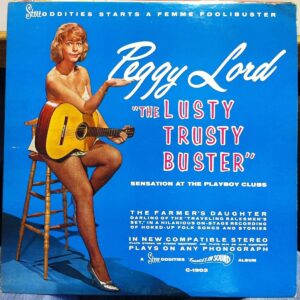
Peggy Lord Chilton’s album of comedy songs
Lakeside Little Theatre’s Legacy Project shares stories from some of the theater’s highly talented members, directors and performers The first video in this series was launched in December starring Barbara Clippinger who provided a snapshot of her life on Broadway and television working with stars like Jackie Gleason and Sammy Davis Jr..
The Legacy Project is available at https://www.lakesidelittletheatre.com/the-legacy-project
Una conversación con Luis F. Pacheco Cámara, nuevo Director Ejecutivo de Lake Chapala Society
El 16 de febrero, el Dr. Patrick O’Heffernan, editor de la Sección Inglesa de Laguna, se sentó para una entrevista exclusiva con Luis F. Pacheco. La entrevista duró más de una hora y cubrió los antecedentes, la experiencia, la filosofía y la visión de Luis Pacheco para LCS. La entrevista duró más de una hora y se publicará en Laguna en tres partes. Ha sido editada ligeramente para mejorar la fluidez y el espacio.
Parte 1: antecedentes para superar las diferencias culturales
Patrick: Háblanos de tu trayectoria.
Luis: Ha sido un viaje interesante. Soy de Ciudad de México y primero estudié ingeniería química, pero lo dejé en el último semestre. Me dediqué al sector social y me hice jesuita durante 8 años. Estuve muy involucrado con las comunidades indígenas. Trabajé en el campo y en una zona aledaña a la Ciudad de México y aprendí que la pobreza urbana puede ser muy diferente y violeta a la del campo. Acabé en Guadalajara y estudié filosofía y ciencias sociales para hacer el doctorado. Surgió Covid y aún no he terminado mi doctorado. He participado en el diseño de programas y en la enseñanza a diferentes niveles. Y tengo experiencia en la recaudación de fondos.
Patrick: Una de tus especialidades es la comprensión intercultural, ¿no es así?
Luis: Pasé tres años en organizaciones relacionadas con la comprensión cultural. Las dos áreas que me gustan son la filosofía social y la ética, y creo que la perspectiva cultural es un punto fuerte y funciona bien en América Latina. Me ayuda a entender las cosas: el enfoque comunitario.
Patrick: Háblame de las diferencias culturales entre gringos y mexicanos. Por ejemplo, el concepto del tiempo y como es visto de manera diferente por las dos comunidades; muchos gringos no se han acostumbrado a esta diferencia en las expectativas sobre el tiempo.
Luis: No y sufren mucho por eso. Uno de los aspectos del trabajo en LCS es cómo podemos crear la transformación cultural que tenemos que pasar si queremos vincular a estas comunidades. Si esperas el estándar de tu propio lado del mundo no vas a entender por qué las otras comunidades hacen las cosas que hacen y te tratan como lo hacen. El tiempo es un ejemplo de ello. Por eso creo que el enfoque intercultural es muy importante. Ambas culturas tienen algo que dar, pero tienen expectativas diferentes, así que debemos crear un equilibrio. Ambas comunidades son muy ricas y pueden enseñarse cosas mutuamente.
Patrick: Habla de eso.
Luis: La cultura americana no tiene una visión histórica de sí misma, pero utilizan el humor, es un recurso cultural muy fuerte para afrontar la vida cotidiana. Los mexicanos tienen una forma especial de crear humor, pero es diferente.
Patrick: ¿Y el consejo a los estadounidenses de traer paciencia a México?
Luis: Paciencia. He pensado en ello. Los americanos son muy organizados y prácticos y sistematizados. Los mexicanos no somos muy buenos en eso, hacemos muchas cosas pero no estamos acostumbrados a que lo que hacemos se traduzca en una metodología que se pueda utilizar en otro lugar. Eso va desde la cocina hasta las tareas domésticas y las profesionales. Si le pides a los cocineros mexicanos que te enseñen cómo lo hacen, te lo explicarán, pero nunca lo harán dos veces de la misma manera. Siempre es bueno, pero diferente. Pero es difícil enseñar sus métodos. Los americanos son buenos para estandarizar las cosas; los americanos son muy buenos en eso.
Patrick: Los mexicanos tienen una gran alegría en su cultura. – su cultura. ¿Cómo afecta eso al acercamiento de las dos culturas?
Luis: Una de las preocupaciones de la junta directiva y la razón por la que están trayendo a un director ejecutivo mexicano por primera vez, es cómo podemos hacer que ambas comunidades se acerquen. Una de las diferencias culturales con las que tenemos que trabajar es el contrato social, que para los estadounidenses se basa en el individuo. En México, se basa en la comunidad. Es muy importante, la comunidad es lo primero. Las fiestas, las celebraciones son tan importantes Nunca eres un individuo, eres parte de un grupo. Esto es especialmente así en las comunidades indígenas, un poco menos en las ciudades cosmopolitas.
Patrick: ¿Cómo funcionan estas dos culturas juntas?
Luis: Hay virtudes en ambas comunidades, muy buenas, pero a veces hay que reflexionar y trabajar sobre ellas. El diálogo entre comunidades lo permite. La flexibilidad es valiosa.
La próxima semana: una nueva visión para LCS
Traducción realizada con la versión gratuita del traductor www.DeepL.com/Translator
Ajijic hotels see an uptick in business but the future is uncertain
Hotel in downtown Ajijic.
Patrick O’Heffernan, Ajijic. Tourism at Ajijic hotels sees an uptick with the end of emergency rules, but most visitors are from Guadalajara and hotel owners are hopeful for a good Easter weekend, but did not see a rush in reservations. Canadians and Americans are virtually gone from most hotels.
Laguna talked with the owners of a number of Ajijic hotels and heard a similar story; last weekend was an improvement, but with the loss of Canadian and American tourism, bookings were shorter and some guests wanted bargain down prices. And, as of the middle of the week, with one exception, reservations for Easter weekend were low or on-existence, but owners say that many guests, especially from Guadalajara, wait until the last minute to book.
All but one said there was an increase last weekend in guests, most said there was no increase this coming weekend as yet. The notable exception was Hotel Danza del Sol, which specializes in multi-bedroom suites for families and groups, whose reservations representative reported a large increase in bookings for this weekend.

Restaurant at the hotel La Nueva Posada en Ajijic.
The loss of business from Canada and the US has impacted the local hotel business in a number of ways. While hotel owners are pleased with the continuing business from Guadalajara, they report that on average, Tapatios only book for one night, instead of the full weekends, and spend less money than Expat tourists.
This has particularly impacted the business of Casa Tres Leones. Co-owner Emilio Wilson said his hotel established a two-night or more policy 13 years ago because they found that the one-night bookings were more difficult in terms of arriving early, leaving late and requiring extra cleanup work.
“We have been closed since March 20 and are now cleared to open, which we are,” the Australian Expat Wilson told Laguna, “and we had no business last weekend. We could have done well if we took one-night bookings, but our policy for 13-years now is two nights or more, so they did not book.” He added that they have advanced bookings in late March and April from the US and Canada, but those will depend on vaccinations.
The majority of the hotel owners who spoke to Laguna were uncertain about the future. Carmina at Casa Flores said that it has been very hard because “no one is coming from Canada and the US” and she understands that potential tourists from there are not sure of when they can come, so the hotel is not sure of anything. She noted that the Publico Magico could help.
Lakeside Assistance waits for Covid restrictions to end to bring in 3 donated fire trucks
John Kelly and firefighting equipment in his garage awaiting distribution.
Patrick O’Heffernan, Ajijic. Somewhere in a warehouse in Vancouver three shinny pumper trucks are waiting to be put on a ship to Puerto Vallarta to be distributed to three lucky Jalisco fire stations by Lakeside Assistance.
The used trucks – all in very good condition – were donated by fires stations in Richmond Canada and the northern Vancouver suburbs, who have been sending used equipment to charities for years with the blessing of their local mayors and city councils.
The three trucks are pumpers – trucks equipped to pump water from an internal tank or a tanker truck to a fire. The trucks are destined for Ixtlahuacán de los Membrillos, Poncitlán, and Atotonilquillo, each of which has been waiting for as long as three years for trucks.
John Kelly, of the Lakeside Assistance met with Laguna and said that the trucks came to them through Toronto-based Firefighters Without Borders, who for years have been collecting used fire trucks and other equipment, refurbishing them, and making them available to non-profit organizations to distribute to underequipped fire stations around the world. One of the Chapala Bomberos’ two pumping trucks was donated by Lakeside Assistance who obtained it from Firefighters Without Borders.
According to Kelly, the trucks are valued at about $5000 each, but if the stations had to pay for them through a broker, they would cost at least three times that much. The fire stations have to pay for tires, batteries and shipping costs.
Kelly, who is Canadian retired military, got involved when a friend in the Royal Canadian Legion in Chapala asked for help finding “mules” to bring used fire equipment into Mexico, and the request eventually grew into a container shipment of 650 sets of hoses and uniforms. Kelly has been involved ever since, visiting fire stations all over Mexico to assess their need and ability to use equipment. And even today, he has 50 sets of hoses and helmets and fireproof uniforms in his garage awaiting distribution.
Although the donations and sponsored by Lakeside Assistance, delivery dates are up to the municipalities that will receive the trucks and has not been determined yet, as their transfer is awaiting lifting of Covid restrictions. Processing and customs and safety approvals take about six months
© 2016. Todos los derechos reservados. Semanario de la Ribera de Chapala







